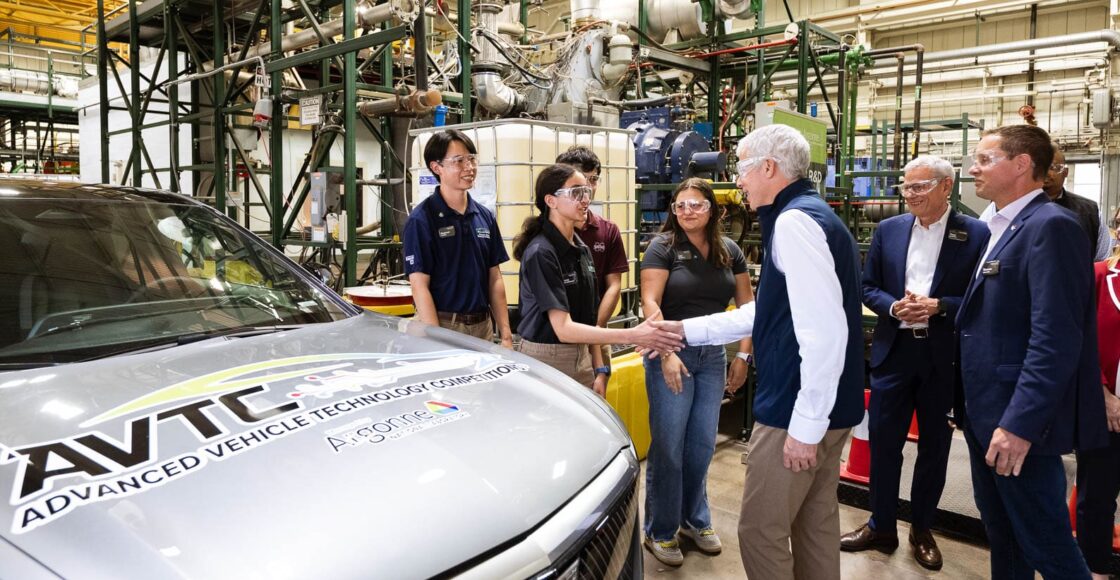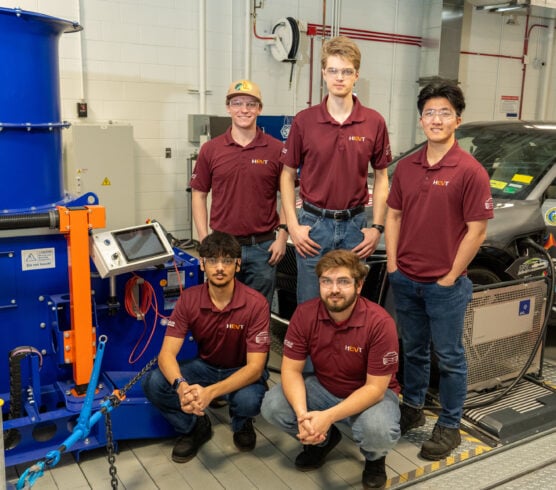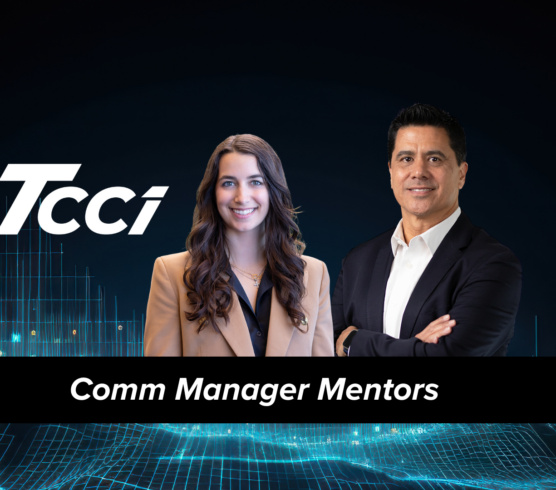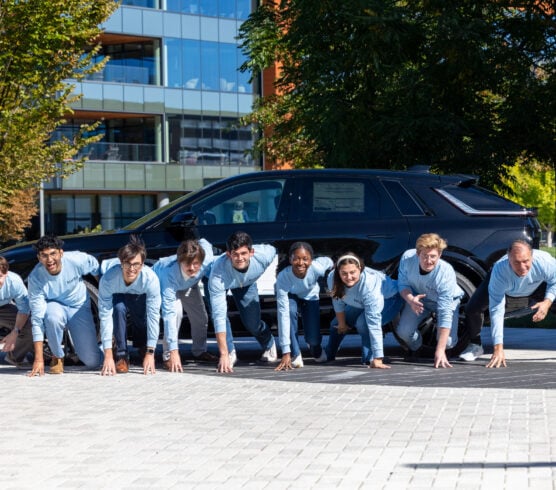This summer, five students joined Argonne National Laboratory’s Strategic Transportation Education and Partnerships (STEP) department through the Department of Energy’s (DOE) Science Undergraduate Laboratory Internship (SULI) program, which encourages undergraduate students to pursue science, technology, engineering, and mathematics (STEM) careers by providing research internships at one of 17 DOE laboratories.
This year’s SULI cohort consisted of many EcoCAR students who supported a wide range of projects for STEP, primarily with Advanced Vehicle Technology Competitions (AVTCs). Each intern was embedded into the team and worked on real-world activities through EcoCAR EV Challenge and Battery Workforce Challenge. From building Battery Management System software testing tools, to enhancing real-time vehicle testing, here’s a detailed look at their work and what they had to say about it.
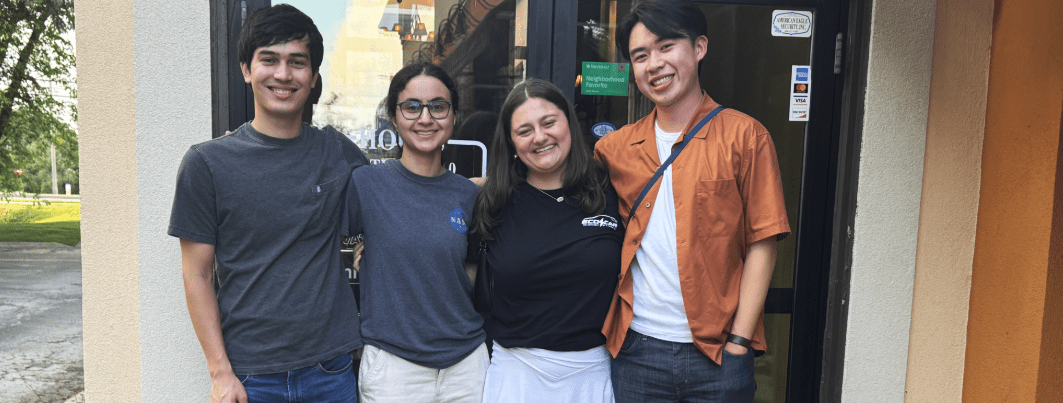
Jacob Roberts: Enhancing Vehicle-to-Everything Testing Tools
Jacob Roberts, a Master’s student at Mississippi State University and EcoCAR Connected and Automated Vehicle (CAV) Lead, joined SULI for a second time following his first internship with the AVTC team in 2022. During his first SULI internship, Jacob supported EcoCAR 3 alumni, Priyash Misra, by preparing tools to support on-road testing of V2X enabled vehicles for the EcoCAR Mobility Challenge.
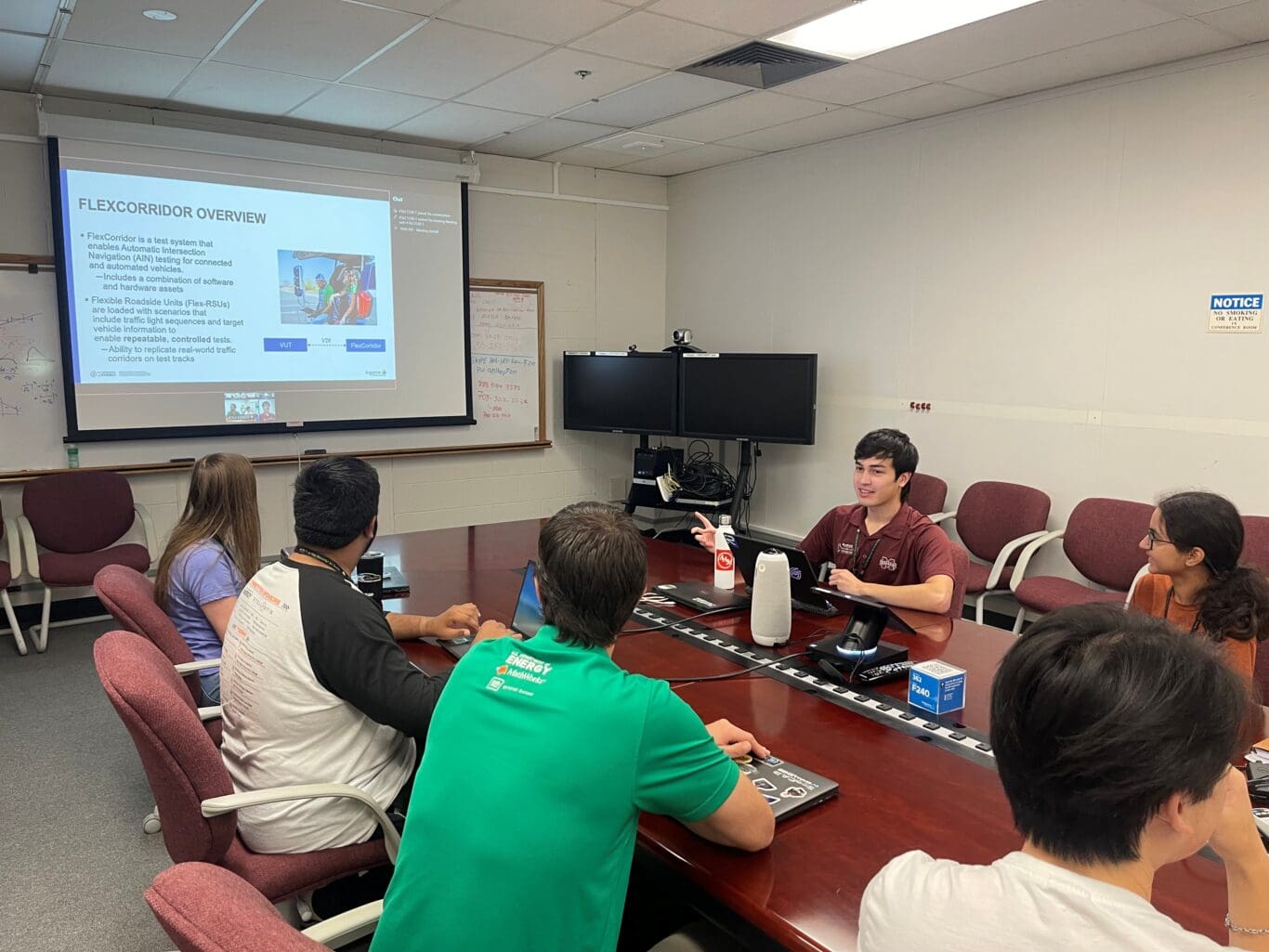
This summer, Jacob continued his work in the CAVs space alongside Priyash by helping expand the capabilities of FlexCorridor, a test environment for CAV systems. He worked on emulating virtual connected vehicles that interact with a test vehicle at intersections, enhancing the realism and controllability of automated intersection navigation tests. His updates allowed for more detailed simulation of vehicle interactions, providing researchers with better tools to evaluate decision-making and timing accuracy.
He also introduced new operator-facing parameters to help identify the vehicle under test more precisely improving setup, repeatability, and data clarity. In parallel, Jacob developed V2X-Viz, a web-based tool for visualizing vehicle-to-everything (V2X) data in real time. This application displays vehicle positions and communication events on an interactive map, helping engineers monitor system behavior during tests.
“This summer, I have been working on systems that help to enable reliable, controlled tests of connected and automated vehicles,” he said. “I have been able to do so because of my mentor Priyash, who has helped to provide me with an environment where I am able to make meaningful contributions. I am excited to see how the tools develop further and how they are used in future AVTCs!”
Lisé Badeaux: Communicating AVTC Impact
Lisé Badeaux, a senior at The University of Alabama and current EcoCAR Communications Manager, worked to assess and communicate the national impact of the AVTC program with STEP mentor and EcoCAR 2 alumni, Ashley Kronsell Oller. Lisé’s primary responsibility was leading the “College to Career” analysis for the AVTC Impact Initiative—a comprehensive, data-driven assessment with over 30 years of competition data. Lisé reviewed employment metrics, student surveys, academic partnerships, and training outcomes to demonstrate the value of AVTCs in shaping career trajectories across engineering, communications, and project management roles.
Beyond analytics, Lisé also played a key role in promoting AVTCs through visual and written storytelling. She created graphics, authored AVTC News Stories, and contributed to logistics for EcoCAR and BattChallenge. Her work helped enhance stakeholder understanding of the program’s educational and workforce contributions.
“This internship gave me the chance to explore both data analysis and storytelling,” she said. “I got to work on projects that combined design, writing, and impact assessment, and I really enjoyed being part of a team that values both numbers and narratives!”
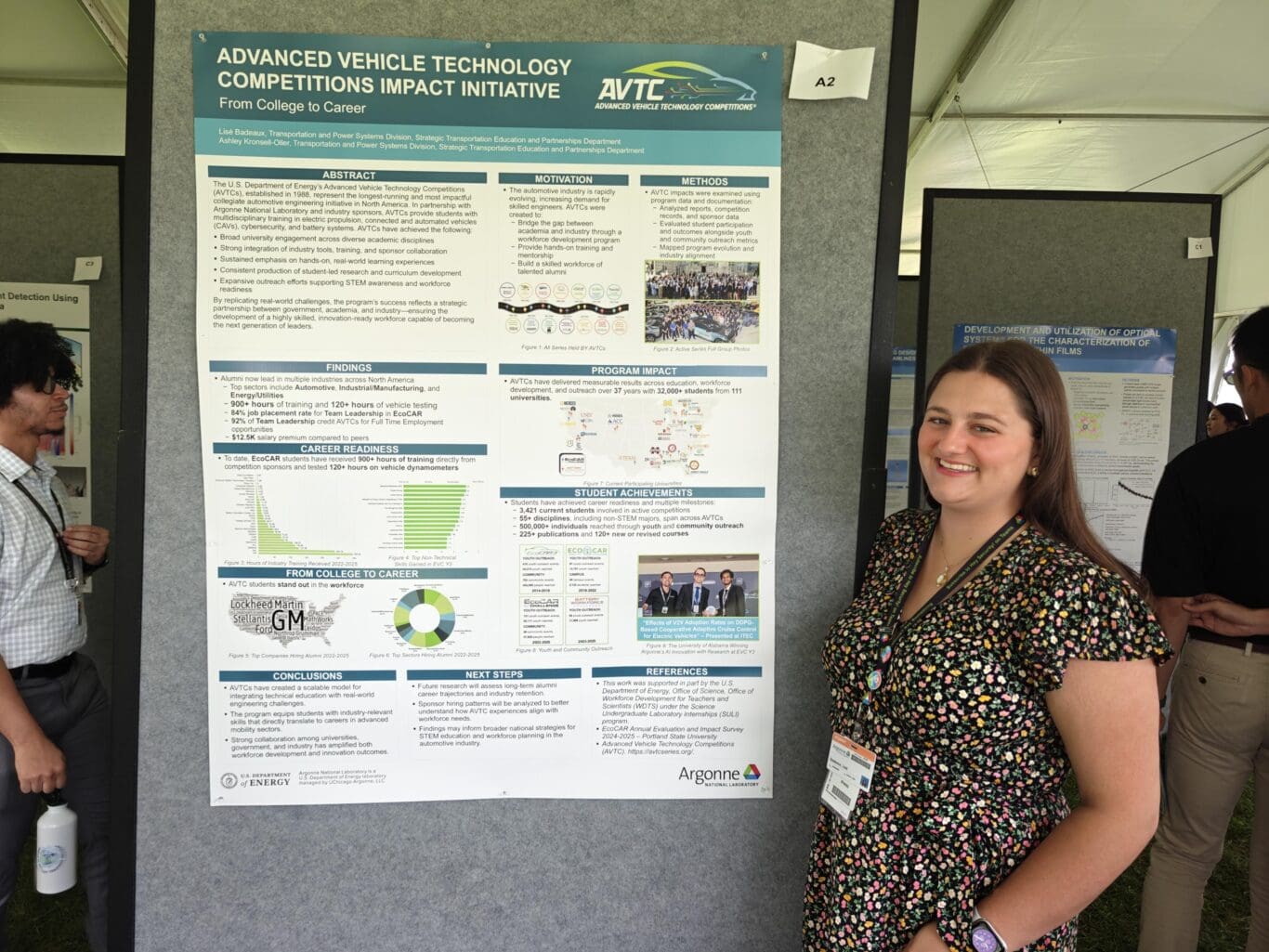
Shana Ebrahimnejad: Building a Hardware-in-the-Loop Battery System
Shana Ebrahimnejad, current senior at The University of California, Davis and Propulsion Controls and Modeling Lead for UC Davis EcoCAR, spent their summer focused on developing a simulated plant model to test student-built Battery Management Systems (BMS) in a Hardware-in-the-Loop (HIL) environment for the Battery Workforce Challenge. Shana supported STEP mentor and EcoCAR 3 alum, Ravi Saripella, by designing the logic and functional blocks that mimic real-world battery behavior such as cell voltage, temperature, and current response, allowing student-developed BMS code to be evaluated without the need for live hardware.
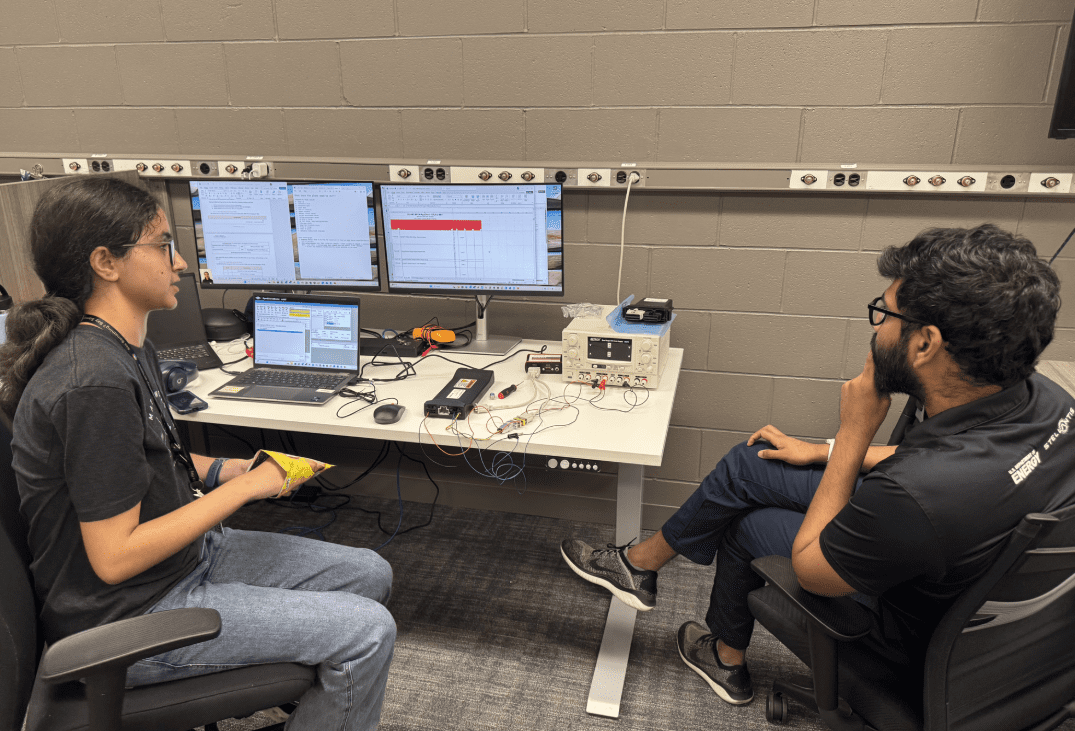
Shana also contributed to the setup and testing of the HIL bench, working closely with sponsor-provided tools and technologies. They ensured system components could communicate effectively with one another and supported real-time simulation integration, helping the technical team improve the usability and reliability of the Battery platform.
“I’m really happy with my internship and with the guidance of my mentors,” Shana said. “Even though I officially only have one mentor, I’ve learned from everyone in the Tech Team and wider BWC team. It’s been a great summer, and I can’t wait to see how the student teams do in the upcoming year!”
Skye Myers: Advancing Learning Tools for Student Teams
Skye Myers, a senior at Embry-Riddle Aeronautical University and EcoCAR Communications Manager, supported Career Connected Learning, which is the Learning Management System (LMS) used by AVTC student teams to learn vehicle technologies and project fundamentals. Working alongside mentor and with STEP mentor and FutureCar alumni, Amy Hortop, Skye focused on course development for the Battery Workforce Challenge. She worked on an onboarding course for new team members and created a BMS Hardware-in-the-Loop instructional module, teaching students how to simulate and build systems using Vector software even without physical hardware access.
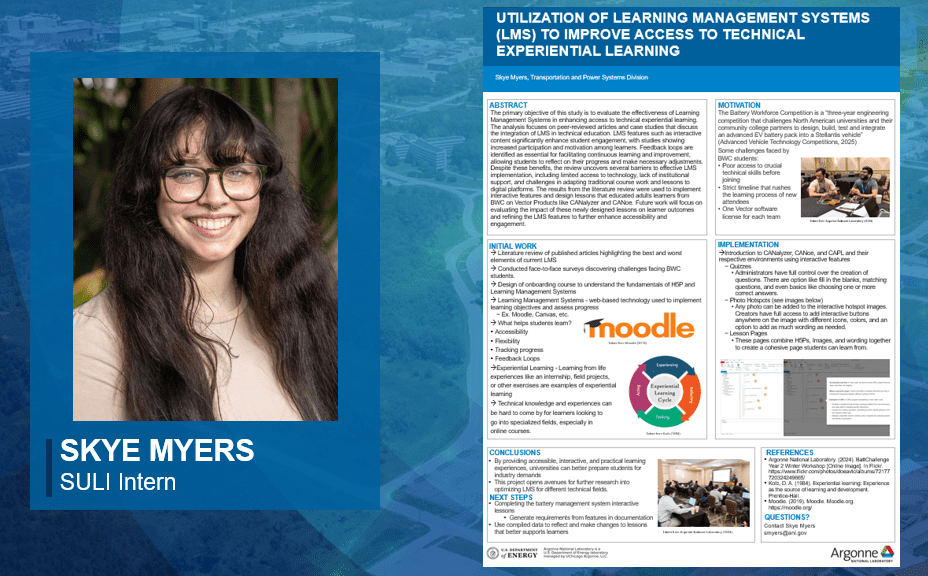
In addition, Skye worked to improve the LMS interface and user experience. She also began planning a new course aimed at helping students perform youth outreach, using online content to build presentation and communication skills. Her contributions directly support AVTC’s mission to offer engaging, adaptable technical education.
“The work I’ve done has combined my studies as an engineer and my experience as an AVTC student,” she said. “I’ve learned so much about battery technology and improved on skills like how to adapt and grow from feedback, and how to effectively teach others!”
Raphael Huang: Redesigning a Tool for Automated Testing
Raphael Huang from the University of California, Santa Cruz worked on modernizing the Longitudinal Automated Replay System (LARS), a tool used to evaluate vehicle efficiency in repeatable driving scenarios. Originally built for a specific vehicle platform, LARS needed to be restructured for wider use. Raphael refactored the system into a modular, open-source format using the Robot Operating System (ROS), enabling researchers to apply it across different test beds and hardware configurations.
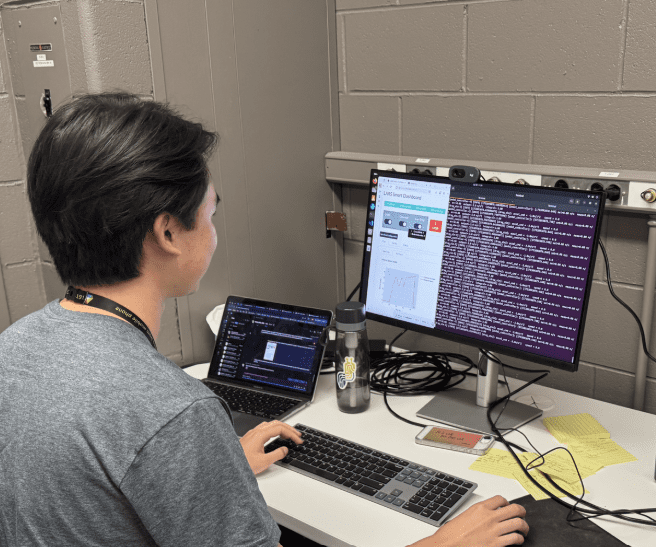
His work focused on improving maintainability, simplifying deployment, and allowing for broader collaboration in future research efforts. By increasing LARS’s flexibility, Raphael supported EcoCAR’s technical goals while contributing to Argonne’s vehicle testing infrastructure.
“This summer, I’ve had the pleasure of working with Dr. Nick Goberville on revamping LARS, which was deployed at the EcoCAR EV Challenge Year 4 Competition,” Raphael said. “Beyond the technical work, this internship gave me a glimpse into Argonne’s uniquely collaborative and curious research environment. I’m incredibly grateful to everyone who’s supported me as I explore what’s next after graduation!”
Internship Highlights
The highlight of students’ internships? Having the opportunity to meet with DOE Secretary Chris Wright during his visit to Argonne.
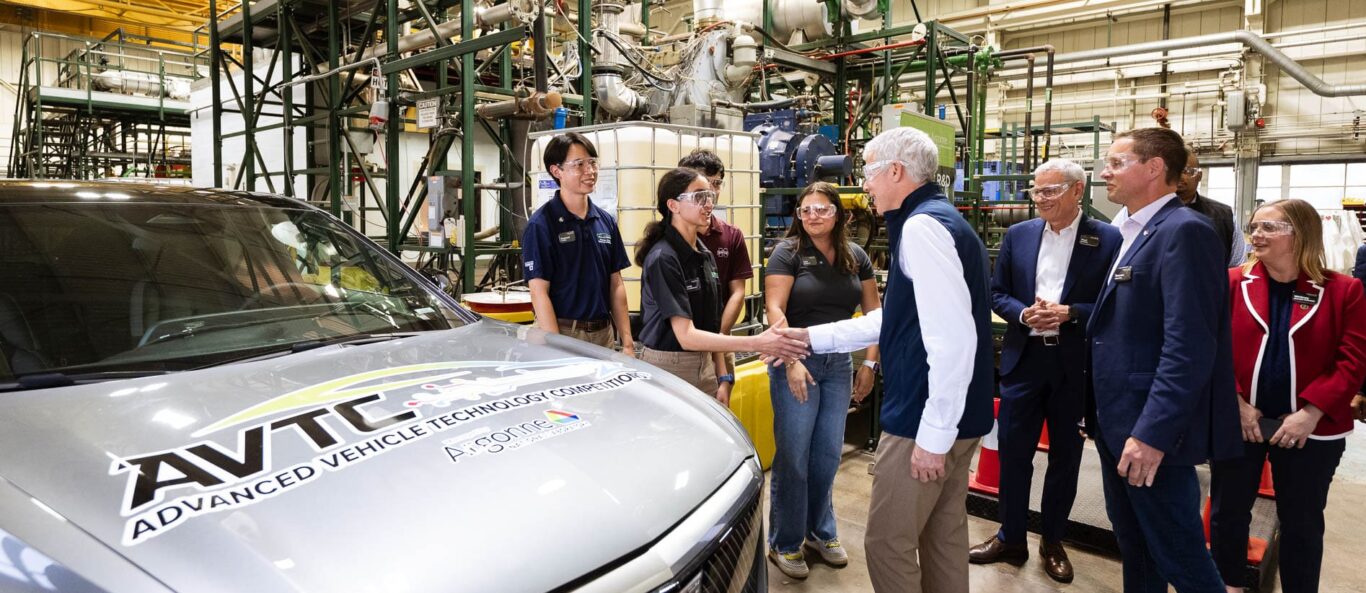
“Getting to meet Secretary Wright during our internship was a standout moment,” said Lisé. “Speaking firsthand about AVTCs and the leadership skills they provide really brought perspective to the work we were doing, It reminded me just how important workforce development is to DOE and how truly impactful it is to be a part of AVTCs.”
Looking Ahead
Each of these interns brought unique talents to the lab and made meaningful contributions to the tools, platforms, and content that support AVTC student teams across North America. As they leave Argonne, they carry forward real-world experience, professional insight, and technical accomplishments that will shape their careers for years to come.
